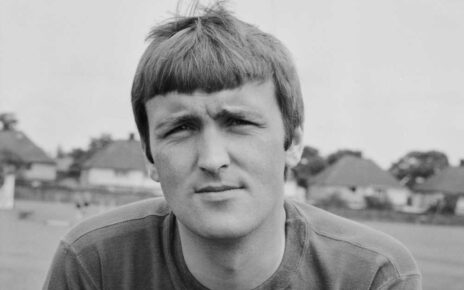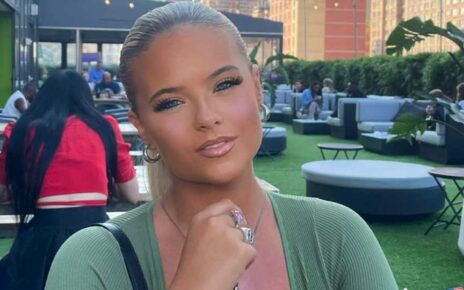Key points
- Dodgeball is growing in popularity as a serious sport in Australia.
- The national team has performed strongly at the world championships in the past but hasn’t won a gold medal yet.
- The team being sent to Canada for this year’s world titles is the largest and strongest yet.
It’s a game played across schoolyards the world over. Children throw balls at their opponents, striking and catching until one player remains.
Dodgeball’s schoolyard nickname of “slaughter ball” hints at how rough it can be. But at world level, the competition is even tougher.
“As soon as you start playing proper competition, you’re like ‘OK, I can actually properly get hurt here’,” says Australian representative Ryan McLaughlin, who has previously suffered shattered knee caps.
Like most players, McLaughlin wears knee pads, but that’s the only protective gear he and most of his teammates use.
At international level, players are capable of throwing the cloth dodgeball at 120km/h, just a smidgen slower than Rafael Nadal’s average forehand speed of 122km/h.
Between 2000 and 3000 Australians now play competitive dodgeball. There are state leagues in Victoria, NSW and South Australia, as well as an Australian national team that has competed since 2013 in the World Dodgeball Championships.
Ryan McLaughlin in action during the 2018 World Dodgeball Championships.Credit:Gabriel Gareth Foo
The game is played over six rounds, totalling 40 minutes of play, on a court the same size as a volleyball court.
There are six players on each team and the objective is to eliminate opponents by striking them with the ball or catching the ball they throw.
There are two types of dodgeballs – foam and cloth – used in different divisions.
It’s a game of great speed, athleticism, tactics and teamwork.
Australian Dodgeball national team member Simone Phillips in action at the Albert Park Sports Centre.Credit:Chris Hopkins
McLaughlin discovered there was an adult dodgeball league with an elite standard of play in 2014.
Five world championships and a couple of bronze medals later, he is now training for his biggest competition yet: the 2022 World Dodgeball Championships in Edmonton, Canada.
McLaughlin, 30, works for Channel 7 in AFL coverage and is father to a newborn baby.
While it may not be his full-time career, McLaughlin loves dodgeball, particularly the respect and camaraderie between players.
Australian representative Stephen David gets airborne to dodge the ball.Credit:Chris Hopkins
He hopes the public perception of dodgeball shifts beyond a game played at school – and the Vince Vaughn/Ben Stiller movie.
“It’s just transitioning from the schoolyard game to the real deal,” he says.
After a two-year hiatus due to COVID-19, Australia’s team will join more than 700 international athletes in August for what is set to be the biggest world championships yet.
Australia currently ranks in the top three countries in the world and is a strong contender for a gold medal, after falling short at previous world championships by just a few points.
Dodgeball player and general manager of the Australian team, Rosie Everett. Credit:Chris Hopkins
Unlike many Australian national teams – including the Socceroos, Wallabies and Matildas – the national dodgeball team does not have a nickname.
Player and national team general manager Rosie Everett said it was an exciting time for Australian dodgeball because the team had grown from 20 athletes qualifying for the 2019 championship in Mexico to a team of 60 heading to Canada.
“We’ve gone from just two teams – men’s and women’s – to men’s, women’s [and] mixed, in both foam and cloth dodgeball.”
The team, an even split of men and women all aged between 20 and 40, is currently fundraising online for the championships. They don’t yet have access to government funding.
Australian dodgeballer Matt Reinhardt on the attack. Credit:Chris Hopkins
Everett said that many of the athletes were physios, creatives and adult gamers who enjoyed the elimination environment of dodgeball.
She said it was “tough for growing sports to really cement themselves in [Australia’s public imagination].”
But Everett is hoping that changes after Edmonton.
“It’s just a matter of persevering and volunteering until the government can recognise you, and then you get access to all these amazing grants.”
The Morning Edition newsletter is our guide to the day’s most important and interesting stories, analysis and insights. Sign up here.
Most Viewed in Sport
From our partners
Source: Read Full Article






